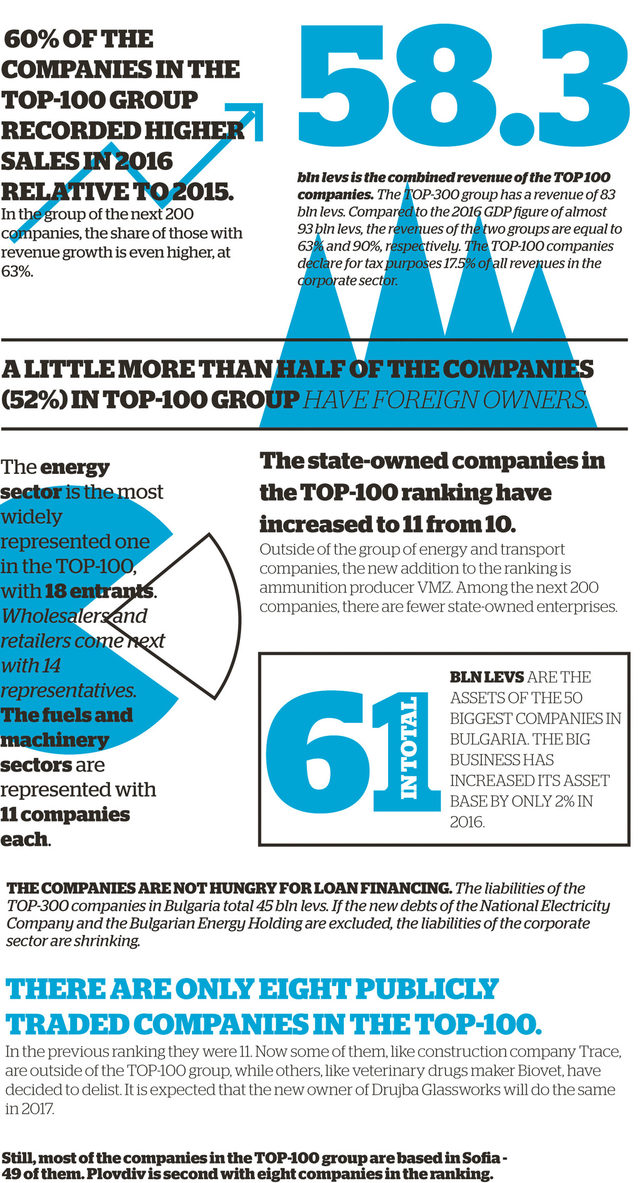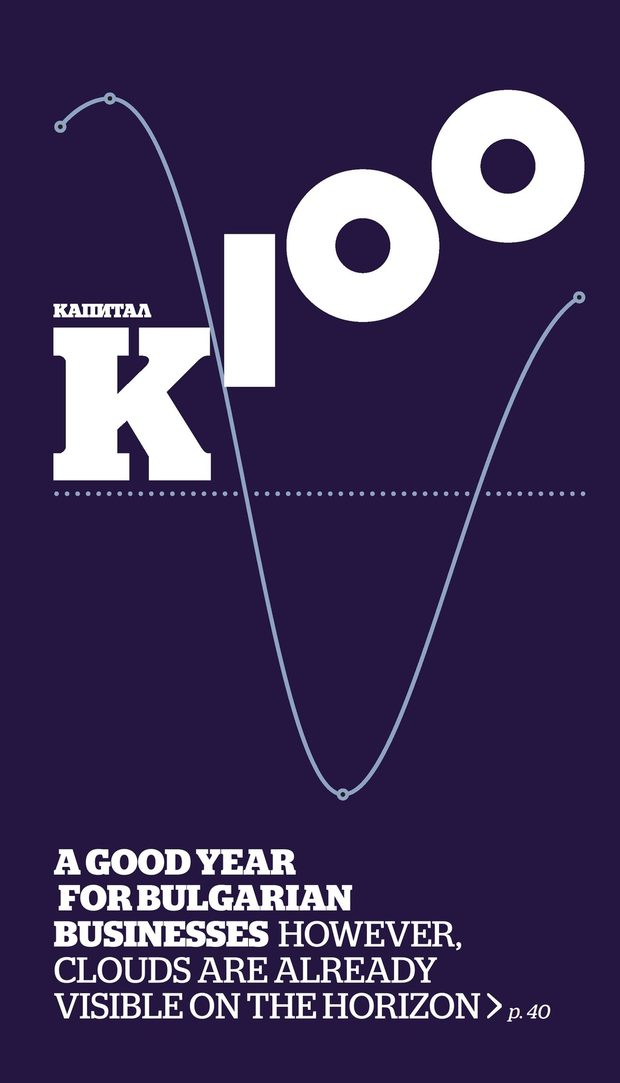A decade after Bulgaria joined the European Union and after the global recession of 2009, Bulgaria's economy now seems stable and changed. Nowadays, the industry is not driven any more by the old Socialist-era mastodons, the new stars are mostly green-field investments and manufacturing is picking up speed. The period of small-scale operations is now over for the IT companies, which have already become medium-sized enterprises, while the EU subsidies helped the agricultural sector become not only export-oriented, but also provide the basis for the business of big local companies processing sunflower and rapeseed.
In a nutshell, companies that have searched for and found foreign markets over the last ten years and are not dependent on the government, are growing. Record exports of goods in 2016 show that for thousands of companies last year was the strongest and 2017 will most probably follow suit. Those, which rely mainly on state and EU funds, especially in construction, haven't many occasions to celebrate.
This is clearly demonstrated by the results of the top 100 companies by revenue in Bulgaria. Known as K100, the annual ranking of the biggest Bulgarian companies compiled by Capital newspaper shows their aggregate revenue has fallen by 1.65% in 2016. If the revenue of the companies in the energy, fuels, construction and raw materials sectors are excluded, the revenue of the remaining ⅔ of the companies in the TOP 100 has grown by 3%

There are two barriers to higher growth: the unfavorable business environment and the shortage of labor. Until now the authorities haven't been very effective in tackling the labor shortage, which is a relatively new phenomenon for Bulgaria. Corruption, administration that is open for lobbying, and a judicial system that does not guarantee property rights, repel both foreign and local entrepreneurs.
Labor shortage has never been so acute. The private sector is trying to compensate for the lack of government initiatives by implementing its own training programs for employees and expanding to new cities. Thus, after the saturation of the region of Plovdiv with new factories, their owners started to attract staff from distant points of the country. Others chose new cities to build their new factories, such as Dimitrovgrad, Shumen, Pazardzhik. Software companies and tourism businesses are trying to bring in workers from abroad.
The lack of staff will hinder the companies' growth prospects in the years to come. Without timely education policies, inclusion of more people into the labor market, more incentives to lure back emigrants and more efforts to attract talent from abroad, the current healthy growth will soon stall.
The data used in the Capital 100 (K100) ranking is submitted by companies to public information sources, state regulators, investment firms and databases. The ranking includes non-financial entities registered in Bulgaria, banks, insurance companies, investment firms, financial vehicle corporations (FVC), hospitals and schools.
The main criterion in the ranking is the total revenue of a company in 2016. There is also information about the net revenue (after taxes) of the companies. Thus, the collected data is representative for the top 95% of the largest Bulgarian companies with yearly revenues of above 100 million levs (50 mln euro).
A decade after Bulgaria joined the European Union and after the global recession of 2009, Bulgaria's economy now seems stable and changed. Nowadays, the industry is not driven any more by the old Socialist-era mastodons, the new stars are mostly green-field investments and manufacturing is picking up speed. The period of small-scale operations is now over for the IT companies, which have already become medium-sized enterprises, while the EU subsidies helped the agricultural sector become not only export-oriented, but also provide the basis for the business of big local companies processing sunflower and rapeseed.
In a nutshell, companies that have searched for and found foreign markets over the last ten years and are not dependent on the government, are growing. Record exports of goods in 2016 show that for thousands of companies last year was the strongest and 2017 will most probably follow suit. Those, which rely mainly on state and EU funds, especially in construction, haven't many occasions to celebrate.












